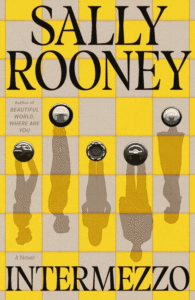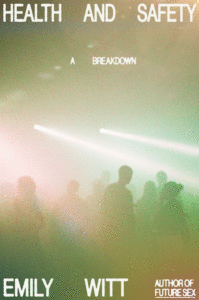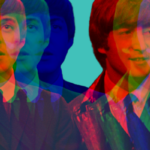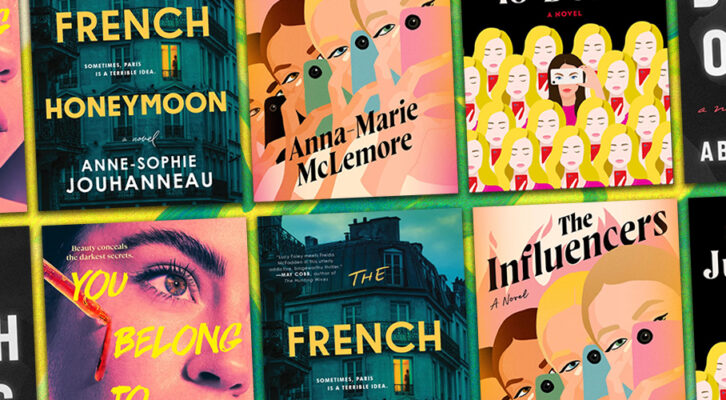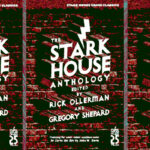5 Book Reviews You Need to Read This Week
“I can’t think of another novel that treats the Earth’s plight with such an expansive and disorienting vision.”
Our mixum-gatherum of magnificent reviews this week includes Andrea Long Chu on Sally Rooney’s Intermezzo, Ron Charles on Richard Powers’ Playground, Kevin Lozano on Emily Witt’s Health and Safety, Jia Tolentino on Tony Tulathimutte’s Rejection, and Lincoln Michel on Jesse Ball’s The Repeat Room.
Brought to you by Book Marks, Lit Hub’s home for book reviews.
*
“So in this criticism—that Rooney writes about love because readers love that sort of thing—we find an important, if largely unconscious, observation about the intersection of literature and capitalism: that the novel form and the commodity form are dialectically entwined, to the point that a given novel’s literary qualities may be impossible to distinguish from its economic ones. The funny thing is that this is precisely what Rooney writes novels about. Her young lovers are painfully aware that love, like the novel itself, may traffic in stock characters and exhausted tropes; that love, also like the novel, may easily be reduced to a source of private profit within a punishing system of exploitation and domination.
Over and over, Rooney’s characters put their faith in love as a means of escape from the conventional roles assigned to them by society and by each other; no sooner have they achieved this than they are rudely confronted with inequalities of wealth, status, and power that are clearly fatal to their idealism—but not to love itself. I take this to be the modest provocation of Rooney’s novels: the idea that love is real precisely because it is a product, one created by social conventions, by market forces, by systems of violence, and, behind all of this, by human beings themselves … For Austen, sexual desire formed the unspeakable outside of their intricate social conventions, whereas Rooney’s characters, young and modern, feel the pressures of conventionality nowhere more acutely than in their sex lives …
She is refusing to see the novel as an abstract quantity. She is insisting that it is a relationship between people. This may strike you as a surprisingly rosy account of mass consumption under capitalism, especially from a critic who keeps quoting Karl Marx. And it’s true: The fact that love consists of nothing but real relations between real people who all inhabit the same real world means that love, for a person or for a novel, will never be an escape from conventions or a relief from power. But this fact about love, what we might call its demoralizing specificity, is also the best evidence we have that love exists.”
–Andrea Long Chu on Sally Rooney’s Intermezzo (Vulture)
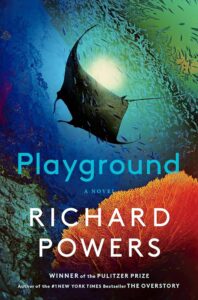
“Leaps across the circuits that enable large language models and delivers a mind-blowing reflection on what it means to live on a dying planet reconceived by artificial intelligence … Although Playground is nowhere near as mammoth as the author’s Pulitzer-winning opus, The Overstory, it follows a similarly fragmented structure. But trust me, any disorientation will eventually melt into wonderment … Alas, the most fantastical element of this speculative novel may be Todd’s thoughtful, plaintive voice, which has no parallel among real-life social media moguls …
Powers’s previous novel, Bewilderment, dealt with similar themes of environmental destruction, but sentimentality built up in that book like nitrogen in a small pond. Here, fortunately, he writes without a drop of mawkishness about guilt and grief and the sorrow endemic to caring about the natural world … even with faith that its parts would at some point cohere, I wasn’t prepared for the astonishing resolution that Powers delivers. In the now-vast library of fiction and nonfiction books reminding us of the planet’s imperiled condition, I can’t think of another novel that treats the Earth’s plight with such an expansive and disorienting vision. In the end, Playground is unspeakably strange. Powers manages to entwine our longing for friendship, paradise and immortality with the algorithms of artificial intelligence that surpass all understanding.”
–Ron Charles on Richard Powers’ Playground (The Washington Post)
“To put into words a world of mostly wordless interactions is the challenge that Witt takes up in Health and Safety. She attempts to capture, through memoir, sociology, and a kind of club ethnography, the many meanings and embodied states of a night out, while also situating them in an evolving subculture … Health and Safety poses a risky proposition: What is the cost—intellectually, socially—of infecting that which gives you fulfillment outside your labor with that most insidious of things, journalism? …
For Witt, clubbing, raving, and dancing were all forms of communion, a way of not just finding herself but finding others. There might be an infinite combination of pleasurable sounds that one can create on a computer, but what Witt is interested in is the infinite combination of feelings one can have on the dance floor: the ways the club is meant to model an almost shared subjectivity, in which a good time is not just felt on the personal level but pulses through the crowd itself … Many have tried to capture what electronic music—specifically techno, in all its pointillism and angular beauty—can give a potential listener, and Witt’s particular rendering of the genre’s richness and weirdness gave me a newfound appreciation for what it was capable of …
This might sound utopian or far-fetched, but Witt’s descriptions are compelling. Her enthusiasm for capturing the experience is also grounded in her sociological and historical observations on dance music’s persistent but marginalized place in American cultural life … even the most personal passages here can end up being the most arresting, because they are so earnest in their efforts to confront these limits and wrestle with the conundrums of being a writer: How do you collect the disparate strands of yourself to understand a moment so much larger than yourself? How can you write about a historical epoch from the limited vantage point of one?”
–Kevin Lozano on Emily Witt’s Health and Safety (The Nation)
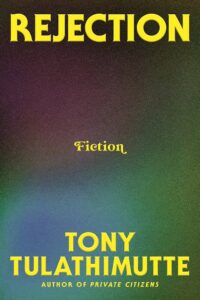
“Not until I picked up Tony Tulathimutte’s Rejection did I realize how fun it could be to read a book about a bunch of huge fucking losers. It sucks for them, the inept, lonely, self-obsessed, self-righteous, self-imprisoned protagonists of these linked stories, but it’s a thrill for the sickos among us, the king being Tulathimutte, who gives loserdom its own rancid carnival. Tulathimutte understands the project—both his own and that of his characters—with diagnostic, comprehensive hyper-precision; as you behold his parade of marketplace failure and personal pathology, he’s ten steps ahead of any reaction you could muster. Thus, you simply surrender to the sick pleasure of watching humiliating people humiliate themselves …
One of the delights of Tulathimutte’s book is his revival of some unfashionable formal pleasures—the theatrically ironic, O. Henry-style twist ending, the linked-short-story collection. (Here, reveals of the various ways that the characters in the book know one another sneak up like waves of nausea, capturing the torturous fact that the people who figure most prominently in our secret shames and desires might well have devoted barely a thought to us at all.) …
His characters are so recognizably, painfully millennial because their selfhood is so obviously mediated by the Internet; their instincts are inextricable from their upbringing in an online ecosystem that seizes every individual’s desires and vulnerabilities as fodder for profit and exploitation.”
–Jia Tolentino on Tony Tulathimutte’s Rejection (The New Yorker)
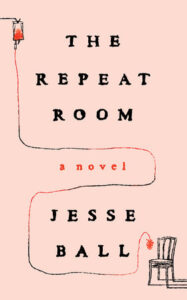
“The premise plays out like an inversion of Franz Kafka’s The Trial, in which we navigate a similarly nightmarish and Byzantine legal system through the eyes of the juror instead of the accused … Ball’s future is a cold one where human connection is scarce … The speculative elements are minimally sketched yet effectively conjure a dystopia of despair and dehumanization …
The second half of The Repeat Room presents a shift in character, setting and style. Ball’s stripped-down surrealism gives way to stream-of-consciousness prose poetry from the point of view of the accused … The back cover describes The Repeat Room, accurately, as ‘Franz Kafka meets Yorgos Lanthimos.’ If the first half remixes The Trial, the second recalls elements of Lanthimos’s breakout film Dogtooth. Both halves are expertly written, and the second is visceral and moving. But do the halves form a whole? The accused is so removed from Abel’s world that the story could be set in another time and place. As for Abel’s society, what does it mean for a state to expend such absurd effort selecting jurors? How would the repeat room’s empathy technology change society. The book opts not to explore, leaving the dystopia feeling indistinct from other fictional totalitarian states. Perhaps this is the trade-off of Ball’s composition process. Ball has said that he writes all his books in as little as a day and rarely as long as a week, hoping to ‘catch a firefly in a glass.’ Ball certainly caught something here. The Repeat Room is compelling, eerie and dreamlike, even if, like a dream, the parts don’t fully cohere.”
–Lincoln Michel on Jesse Ball’s The Repeat Room (The New York Times Book Review)



